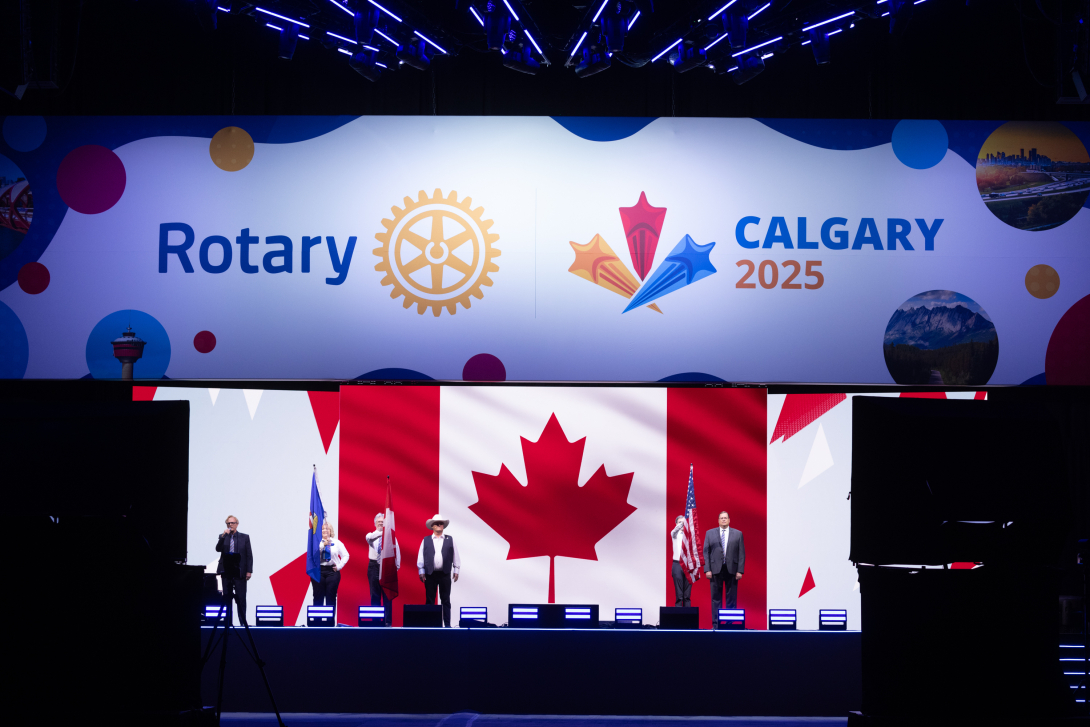
Rotary, Gates Foundation Extend Partnership with USD 450 Million Commitment to End Polio
By Rtn Sylvia Nankya
Rotary International and the Bill & Melinda Gates Foundation have announced a renewed joint commitment of up to US$450 million to accelerate efforts to eradicate polio globally.
This marks a powerful continuation of a longstanding partnership in the fight against the disease.
At the 2025 Rotary International Convention, President Stephanie Urchick emphasised Rotary’s unwavering commitment to global health.
“We are not backing down from our commitment to public health,” she said. “This renewed commitment is more than funding. It’s a promise to future generations and proof that when we work together, we achieve the extraordinary.”
Under the renewed agreement, Rotary will contribute USD 50 million annually for the next three years, and for every dollar raised, the Gates Foundation will contribute an additional two dollars, bringing the total potential investment to USD 450 million.
These funds will support the work of the Global Polio Eradication Initiative (GPEI), focusing on high-risk areas such as Afghanistan and Pakistan: the only two countries still reporting cases of wild poliovirus.
Bill Gates, Co-Chair of the Gates Foundation, reaffirmed the Foundation’s trust in Rotary’s leadership and the global partnership to end polio:
“Rotary was the first to envision a world without polio, and today, we have the tools and knowledge to make that vision a reality. If we all maintain our commitment and keep funding the solutions we know work, then soon, no family will have to live in fear of this horrific disease again.”
Since the launch of PolioPlus in 1985, Rotary has contributed more than USD 2.9 billion to the cause. Canadian Rotarians alone have contributed over USD 50 million, and the Government of Canada has recently pledged CAD 151 million, adding to its total contribution of over CAD 1 billion.
The impact of these efforts is undeniable. When the GPEI was founded in 1988, with Rotary, WHO, UNICEF, and the U.S. Centers for Disease Control and Prevention as founding partners, there were 350,000 cases of polio annually.
Today, that number has dropped by more than 99.9 per cent, with over 20 million people spared from paralysis thanks to coordinated global efforts.
Mike McGovern, Chair of Rotary’s International PolioPlus Committee, highlighted both the progress and the challenges:
“While historic progress has been made, 90 per cent of the world’s population is now free from wild poliovirus, challenges remain, including fragile health systems, competing financial priorities, and recent outbreaks in previously polio-free areas like Papua New Guinea. The threat of polio anywhere is a threat everywhere.”
He added that the extended partnership will allow for expanded vaccination campaigns, enhanced disease surveillance, and critical community outreach.
Indeed, Rotary’s emergency response capabilities were evident in late 2024, when the organisation swiftly committed USD 500,000 to support a two-round polio vaccination campaign in Gaza, after a confirmed case in a 10-month-old child.
At the Convention, Dr Tedros Adhanom Ghebreyesus, Director-General of the World Health Organisation, praised Rotary’s role:
“Rotary were a pathfinder in the drive to eradicate polio. Because of your audacity to start and your tenacity to finish, we are closer than ever to making polio the second human disease to be eradicated. But the last mile is always the hardest.”
He warned that cuts to global health budgets and disruptions to supply chains are threatening progress, but remained hopeful:
“In every crisis lies an opportunity. Rotary’s voice is essential to hold governments accountable to their promises. Health can be a bridge to peace. There is no health without peace, and no peace without health.”
The convention also spotlighted Rotary Fellowships, groups that connect Rotarians with shared interests, underscoring how Rotary’s service transcends borders and causes from polio to peace.
